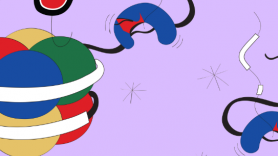Genetic information is encoded in our DNA, which is metaphorically known as an instruction manual. However, this ‘manual’ is hard to interpret and the same instructions are used to create cells that are extremely different, like neurons and skin cells. In reality, it is more like a choreography in which genes switch on and off depending on the time, circumstances and place.
In this metaphor, beyond genetics, epigenetics would be directing the dancing. It encompasses a series of regulatory layers that use interconnected mechanisms to coordinate what each cell should do at any given time. We do not yet understand many of these mechanisms but they are so important that alterations in the system can lead to numerous very serious problems. Of all of these, one of the most widely studied is its relationship with cancer and epigenetic markers are already being used in some cases to refine diagnoses or guide therapy.
To discuss some of the latest, most important advances in this field, several top international experts met for a session of B·Debate, an initiative of Biocat and the “la Caixa” Foundation to promote scientific debate. This is the fifth time this series of conferences on epigenetics has been held, helping put Barcelona in the spotlight in this booming field. In this occasion, the B·Debate was organized jointly with the Institute of Molecular Biology of Barcelona (CSIC) and the Institut d’Investigació contra la Leucèmia Josep Carreras (IJC), with the collaboration of the Institut de Recerca Biomèdica (IRB Barcelona), the Program 'Epigenetics and Cancer Biology (PEBC, IDIBELL) and the Center for Genomic Regulation (CRG).
CONCLUSIONS:
-
Epigenetics is responsible for proper development of cells and tissue. Alterations in how it works are associated with serious diseases, including nearly all tumors.
-
There is a very close connection between the most basic and applied research. The study of epigenetic mechanisms is yielding hints to possible treatments.
- Some of the applications of epigenetics to treat cancer include guiding certain therapies and classifying tumors of unknown origin.
-
The genome is no longer seen as a linear instruction manual. To be read, its 3D structure is key and is one of the mechanisms of cell identity.



